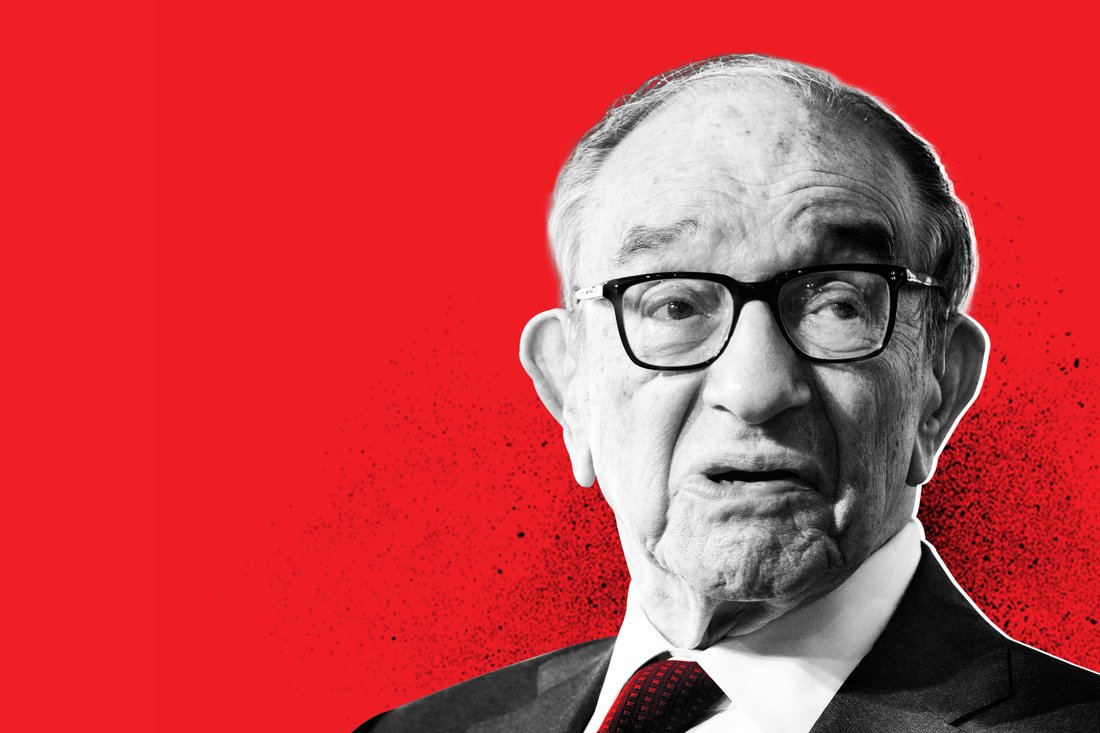下一次危机即将到来,它长什么样?
|
十年前的那个周末,全球金融界天翻地覆。十年来,最重要的教训不在于什么变了,尽管变化巨大影响深远,但更重要的是什么没变。上次危机的主要原因是人类的自欺欺人和不理性,这仍将成为引发下次危机的主要原因。是不是十分沮丧,难以接受?想想好的方面,这至少告诉了我们要警惕什么。 2008年9月15日,天尚未破晓,雷曼兄弟宣布破产,这并非史上第一次也不是最严重的一次金融危机,但却是最骇人的一次,因为人们难以想象这家规模庞大、声誉良好排名领先的投行界巨头也会破产。雷曼的破产让人们不再相信原本笃定的想法,为后续一系列让人晕头撞向的变化揭开序幕,现在其中许多变化已经融入我们的日常生活。 但是人们发现,原来自己笃定的想法本身就是建立在毫无根据的基础上。众所周知,美国的房屋拥有率长期以来持续增长,这也是美国立国之本的一部分。人们对此毫不怀疑,因此助涨了21世纪初宽松信贷环境下的购房狂潮,热潮的出现源于人们坚信当时史无前例疯狂上涨的房价会永远高企。包括雷曼在内的大型机构投资者看好这种基于公众信心的涨价潮,把赌注押在不可靠的次级贷款上,最终落得破产,经济也因此遭受重创。(至于房屋持有率,40年的上涨从此中断,一路猛跌,而且毫无恢复迹象。) |
TEN YEARS AFTER the weekend that upended the financial world, its most important lessons lie not in what has changed, vast and profound though that is, but in what hasn’t changed. The main causes of the last crisis—human self-delusion and irrationality—will be the main causes of the next one. If that seems unbearably depressing, cheer up: It tells us what to watch out for. Lehman Brothers’ bankruptcy announcement in the predawn darkness of Sept. 15, 2008, wasn’t the first or worst event of the financial crisis, but it was the most frightening because it was unthinkable, given the investment bank’s size and exalted stature. It unmoored us from our certainties and set the stage for other disorienting changes, many of which are now embedded in our daily lives. But those same certainties were built on foundations that turned out to be unfounded. We all knew that U.S. homeownership rises over the long term; that’s part of what America is about. That unshakable confidence helped fuel the easy-credit home-buying frenzy of the early 2000s, a frenzy driven by the belief that an unprecedented spike in property prices would last indefinitely. Big institutional investors—including Lehman—bought into the faith-based rally, betting on the kinds of shaky subprime loans that eventually brought them down and cratered the economy. (As for the homeownership rate, it plunged, erasing 40 years of increase, and is nowhere near recovering.) |

|
如果说妄想型乐观是过往大规模金融灾害的罪魁祸首,妄想型悲观导致多数美国人无法康复。 盖洛普的数据表明,人们的股票持有率甚至低于2000至2001年互联网泡沫破灭后的数据。我们大多数人对和金融有关的一切深感恐惧,表现反常。Betterment robo咨询公司一项新调查表明,48%的受访者认为股市过去十年没有上涨,其中还有18%的人认为股市下跌了,简直令人难以置信。48%意味着接近一半的美国成年人,他们只需花10秒钟上网查一下,就能知道雷曼兄弟破产后,股市已经上涨了140%。但他们就是不看。他们就像是不敢打开美国国税局来信的那些人。只是想一想,就浑身发抖。 这种自毁行为恰恰提醒我们,在这场危机中我们再次认识到了:大部分人的行为都不理性。华尔街上太多人相信当时喧嚣的市场反映的是人们根据古典微观经济学进行了机器式精密计算的结果。前美联储主席艾伦·格林斯潘40多年来都是一位超理性自由意志者,却向国会委员会承认发现自己“定义世界如何运转的重要功能结构”模型失效时,他“深感震惊”。他绝非一个人。 破坏能力最强的不理性是固执却又错误地认为估值的基本原则不再适用,认为这次不一样。这句话成为经济学家卡门·莱因哈特和肯尼斯·罗格夫合著的畅销书书名,告诉人们正是这种信念催生了几个世纪以来的多次金融危机。行为金融学认为,过度自信、过度推断、从小样本得出大结论等深层错误强化了人们的误判行为。 没人知道下次危机的导火索是什么,但我们可以肯定,下次危机一定是基于同样的错误。不要指望你的老板、银行、保险公司或者监管者保护你。但你可以保护自己,因为你已经知道怎样发现问题。具体如下: · 经常问问自己,哪些市场的价格只有在相信估值的基本原则不再适用时才显得合情合理,这样可以帮助你识别热点…… · 多听听和主流意见相悖、过去表现良好、可靠的非主流思想家的意见,比如上次危机中基金经理杰瑞米·格兰瑟姆、经济学家罗伯特·席勒和鲁里埃尔·鲁比尼。你无法确定他们就是对的,但因为他们可能是对的,你可以提前做好准备。这就意味着…… · 不要预测未来——未来无法预测。相反,设想一下未来每一种可能性出现时的场景并制定计划。不要担心你的大部分计划派不上用场;未雨绸缪要好过亡羊补牢。 10年前的危机爆发告诉我们哪怕在世界型的金融灾难中,并非人人都受到同样的冲击。对冲基金经理约翰·鲍尔森因为做空次贷赚了几十亿美元,因为次贷本身就不符合常规的估值法则。你可能做不到这么成功,但总有些人能够安然度过下次危机。理性决断,你也能成为其中一员。(财富中文网) 本文另一版本刊于2018年10月1日《财富》杂志,题目是《如何识别下一次金融危机》。 译者:Ty |
If delusional optimism led to widespread financial harm, delusional pessimism has kept many Americans from healing. We’re still less likely to own stocks than we were even after the dotcom meltdown of 2000–01, says the Gallup research firm. More of us are truly terrified of anything associated with finance, which makes us behave bizarrely. A new survey by the Betterment robo-advisory firm finds, incredibly, that 48% of respondents think the stock market hasn’t gone up in the past decade, including 18% who think it has gone down. That’s half of American adults, and it would take them 10 seconds online to learn that stocks are up 140% since Lehman failed. But they don’t look. They’re like the person who can’t open the letter from the IRS. The very thought makes them quiver. Such self-destructive behavior reminds us of what we relearned in the crisis: Most people don’t behave rationally. Too many on Wall Street believed the madhouse markets reflected people making the machinelike calculations of classical microeconomics. Former Federal Reserve chairman Alan Greenspan, a hyperrational libertarian for 40-plus years, confessed before a congressional committee he was “shocked” that his model of “the critical functioning structure that defines how the world works” didn’t work. He wasn’t alone. The most damaging irrationality was a dogged but mistaken belief that fundamental rules of valuation no longer applied—that this time is different. The phrase became the title of a bestseller by economists Carmen Reinhart and Kenneth Rogoff, showing that such a belief has fueled financial disasters for centuries. Deep-rooted errors identified by behavioral finance— overconfidence, over-extrapolation, drawing big conclusions from small samples—reinforced the misjudgment. No one knows what will trigger the next crisis, but we know for sure it will be built on the same kind of mistakes. Don’t count on employers, banks, insurers, or regulators to protect you. But you can shield yourself because you already know how to spot trouble. Specifically: · Ask yourself regularly which markets look reasonably priced only if you believe that fundamental rules of valuation no longer apply. To help you identify such hotspots… · Listen to the responsible fringe—thinkers with strong records who are contradicting the mainstream view. Last time they included fund manager Jeremy Grantham and economists Robert Shiller and Nouriel Roubini. You can’t know if they’re right, but you can prepare for the possibility that they might be. That means… · Don’t predict the future—you can’t. Instead, envision scenarios and plan for each one. Don’t worry that most of your plans will be wasted; it’s better to be prepared for events that don’t happen than unprepared for those that do. The crisis that erupted 10 years ago reminded us that even in a worldwide financial calamity, not everyone suffers equally. Hedge fund manager John Paulson made billions betting against subprime mortgages, a business that had abandoned usual valuation rules. You may not do so well, but we know that some people will come through the next crisis just fine. Resolve, rationally, to be among them. A version of this article appears in the October 1, 2018 issue of Fortune with the headline “How to Spot the Next Financial Crisis.” |













